The 15 most exciting new hardware synths of 2024: analogue and digital instruments from Korg, Behringer and more
GEAR EXPO 2024: The must-have new monster synths you need to audition this year
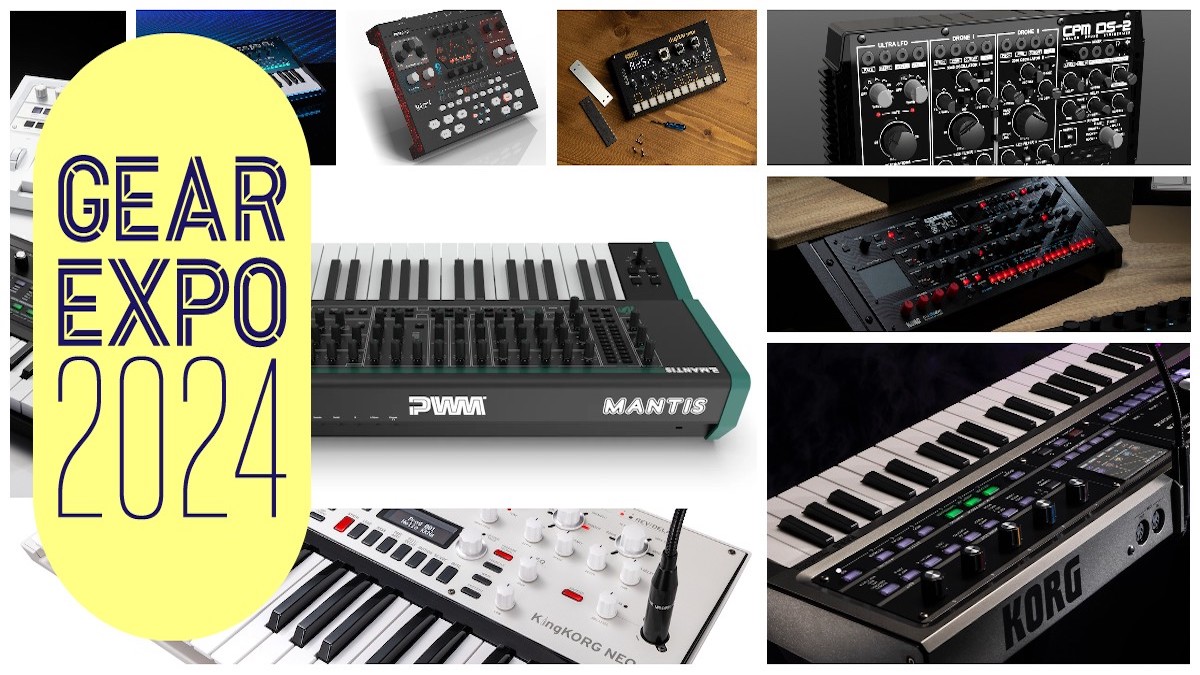
GEAR EXPO 2024: The year ahead looks like being one of the most exciting ever for the hardware synthesizer. As well as the Eurorack phenomenon continuing apace, there are all manner of other hardware synths making waves.
It's not just about the return of huge and expensive analogue machines anymore either, because digital synths have made something of a comeback, too, and they are more cost-effective and easier to use than ever before.
We've gathered all the latest hardware synth news and reviews, and homed in on the most exciting releases across both analogue and digital synth domains. There are all-new wavetable synths, some incredible new and reasonably priced analogues, some Behringer clones (of course) and the best in affordable digital.
Here, then, are the best synths of 2024 so far…
UDO Audio Super Gemini
Super Gemini is a "bi-timbral analogue-hybrid powerhouse" from UDO Audio that delivers (almost) two of the company's Super 6 synths in one box. It shares the Super6's binaural sound format – effectively putting two identical voices together for a true stereo sound, or you can choose to play a whopping 20 mono voices instead.
Super Gemini's hybrid nature comes from dual DSS oscillators for each of its two layers that are digital but then also combine with a pure analogue filter and VCA sections. The DSS oscillators are able to produce standard analogue waves or access digital waveforms, and even morph between them. It's not quite up there with full wavetable synthesis, but this does add true dynamic flexibility to the synth's core ingredients.
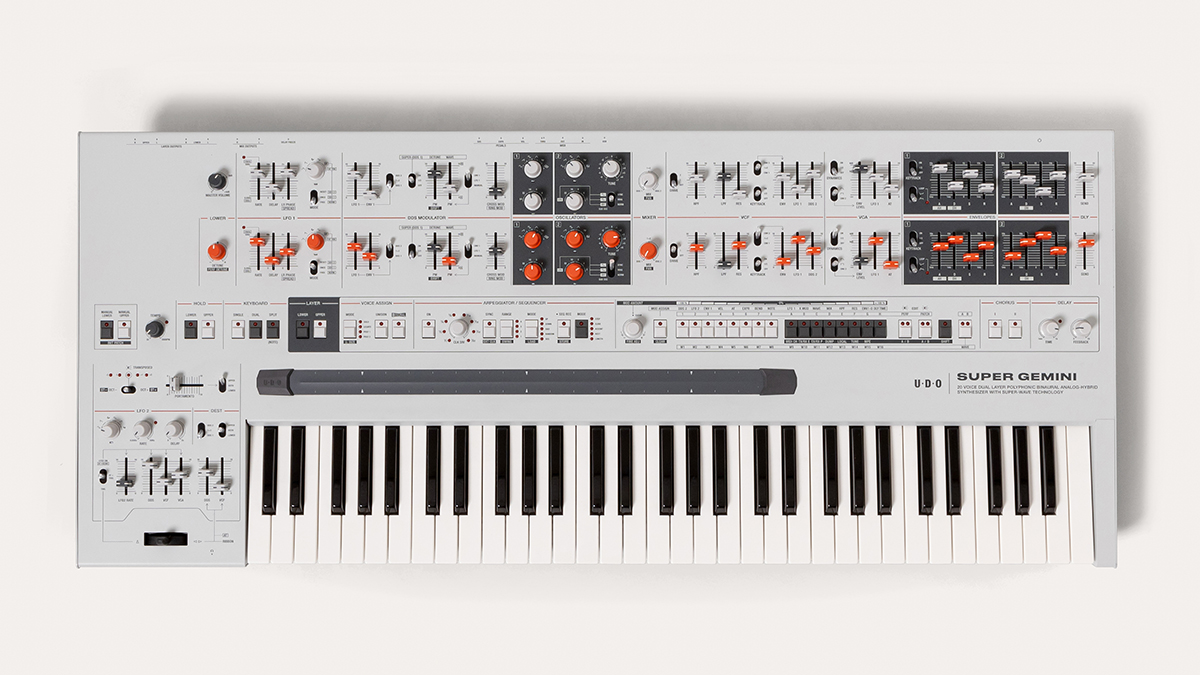
A key feature is that, while the synth might not have a screen, it does have two sets of controls per synth layer, so it's like having access to two synths. And you get all of this from the front panel, so there is no need for complex menu diving as there is no menu!
Get the MusicRadar Newsletter
Want all the hottest music and gear news, reviews, deals, features and more, direct to your inbox? Sign up here.
Other highlights are the superb modulation capabilities, all combined with a ribbon controller and polyphonic aftertouch that make it one of the most expressive synths we've played. It's not cheap, at £3,595 (around $4,100), but you do get an awful lot of synth for that cash.
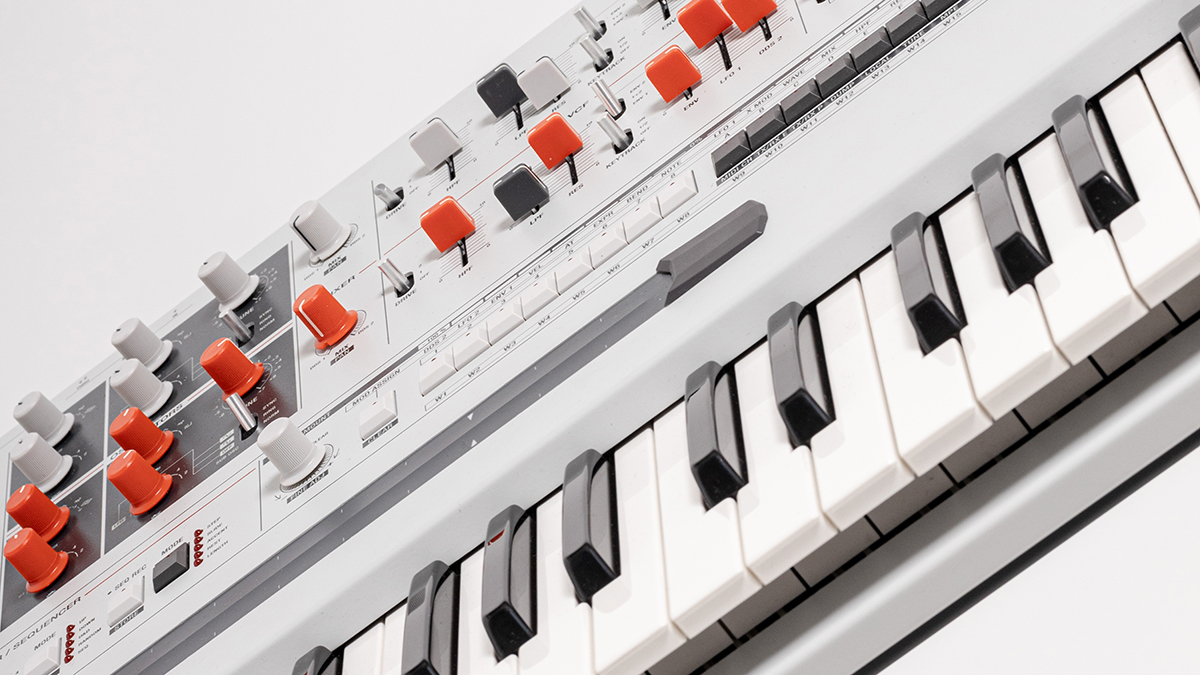
A Magnificent 8 Korg Synths
Korg basically won the NAMM show in January by announcing more products than pretty much anyone else, eight of them being hardware synths. Let's take a closer look…
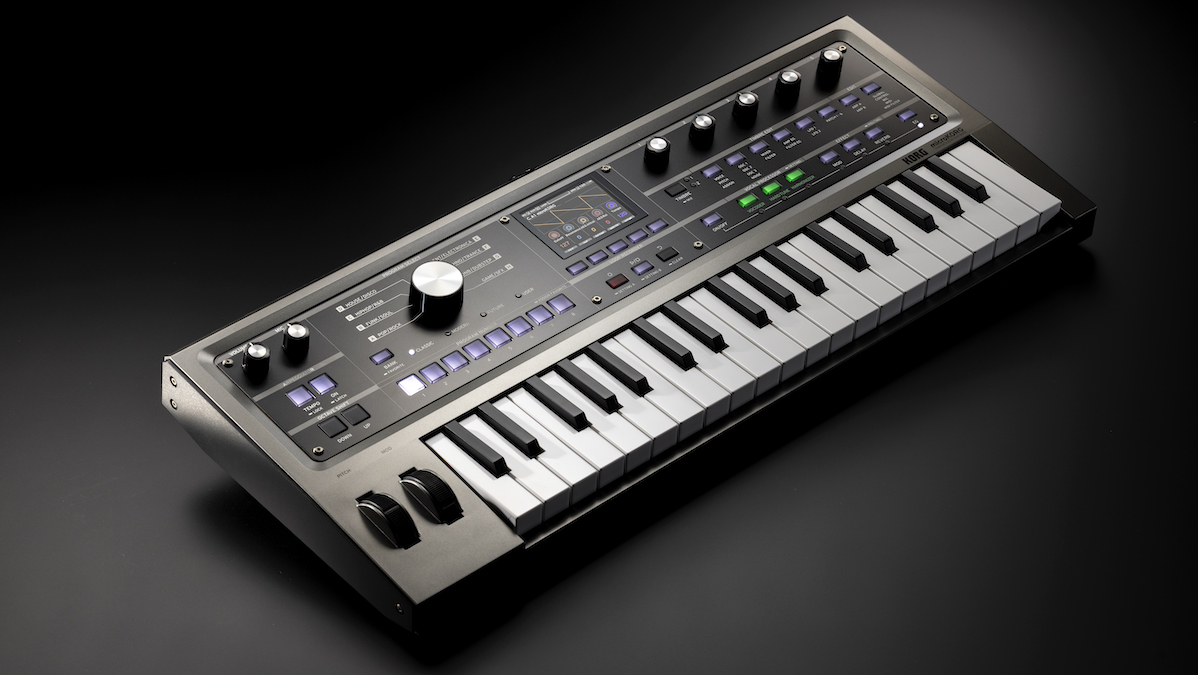
MicroKorg 2 is an update to arguably – in terms of sales, anyway – the most successful synth in history. The original MicroKorg has had various revisions and limited editions, but the all new MicroKorg 2 is a complete redesign, with a large 2.8-inch colour screen and five assignable rotaries dominating its front panel.
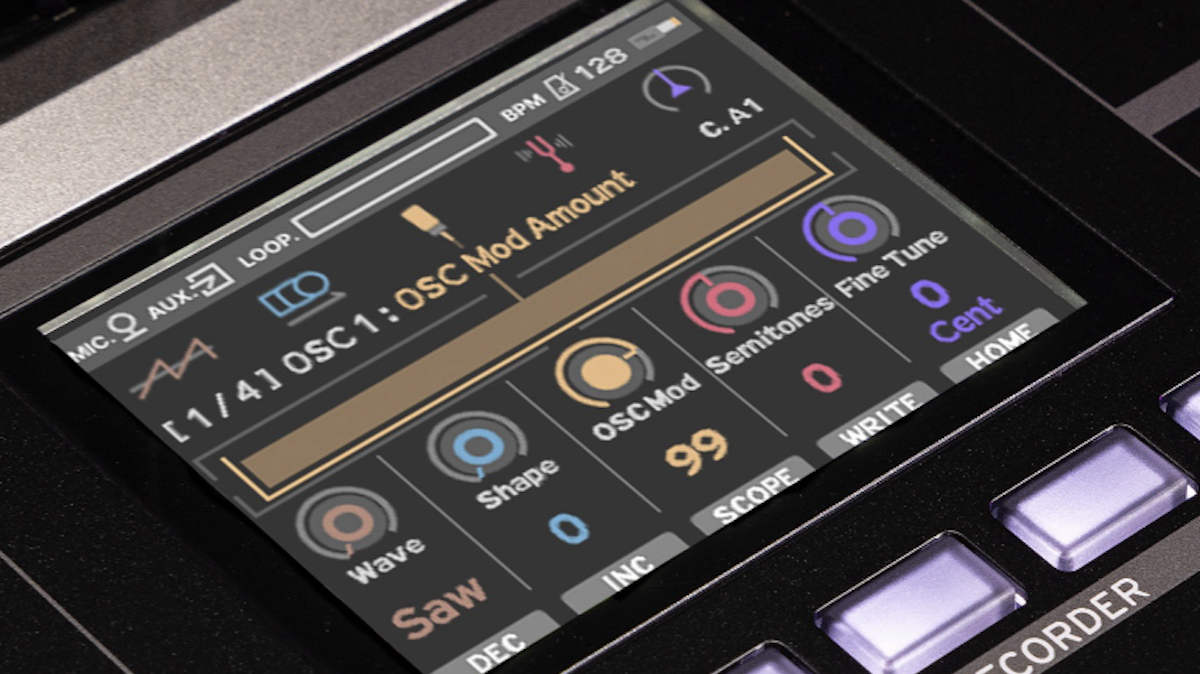
MicroKorg 2 also has a new vocal processor, with a harmoniser and Auto-Tune-style effects adding to the synth's already fulsome vocoder effects. The synth also boasts an all-new arpeggiator and loop recorder.
Add in three banks of new effects, a redesigned metal case and a better, 'more playable' keyboard, and you can see that this latest incarnation of MicroKorg really does deserve that 'version 2' status.
The retail price is expected to be around $699 and £549, with the synth shipping in June, and there will be black and white limited editions, too…
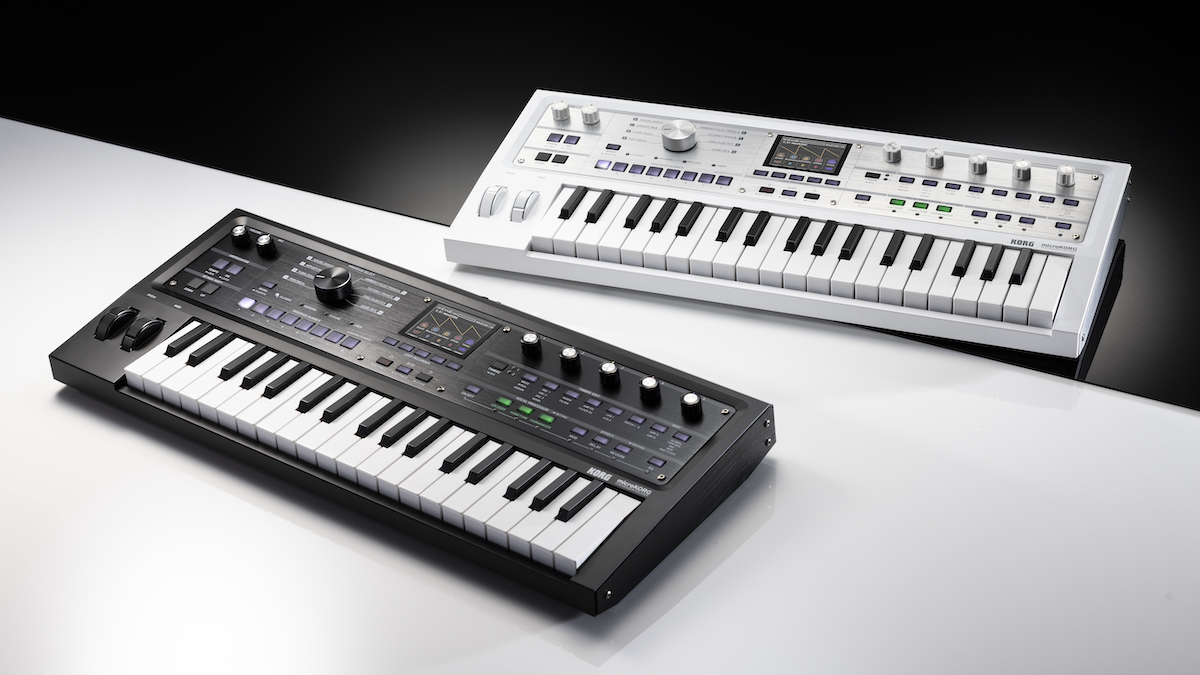
Korg's new KingKorg Neo, meanwhile, is a very neat looking and compact version of the company's KingKorg VA synth. It includes the same XMT (eXpanded Modeling Technology) synthesis, which is geared towards virtual analogue sounds, and as you can see, offers a lot of traditional style controls over them.
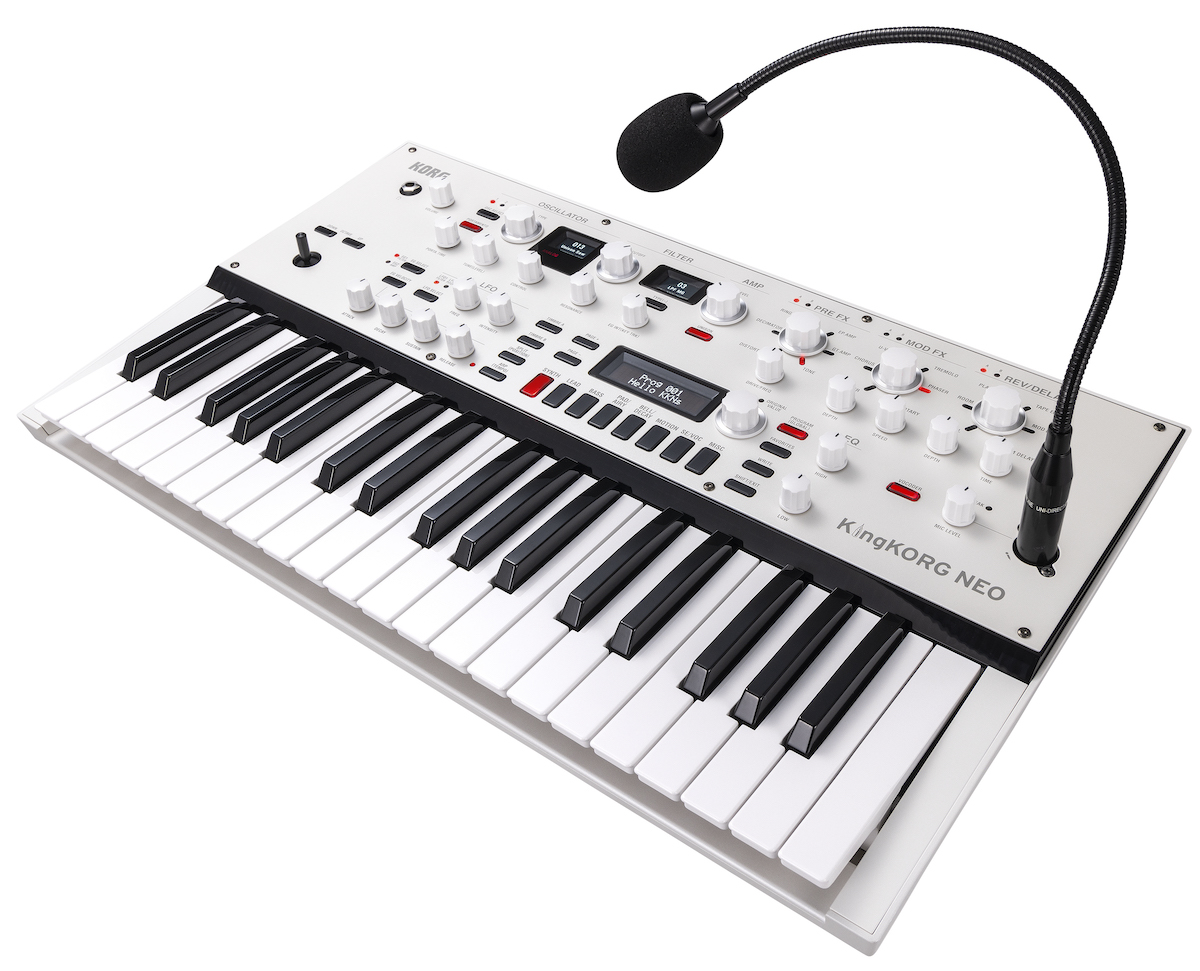
There are also some added extras including a decent set of filters, many of which are modelled on classic synths like Korg's own MS-20. There's also a vocoder, six effect types, and a handy virtual patching system. KingKorg Neo has 200 presets, a whopping three displays and an arpeggiator.
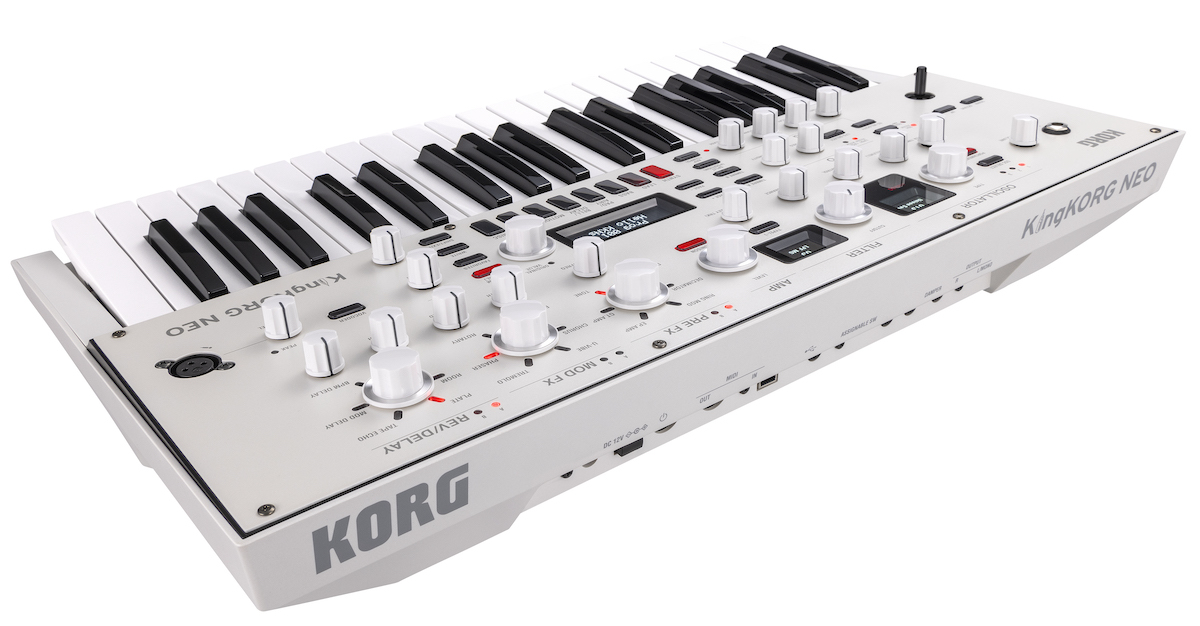
The synth is available now with an RRP of £949/€1099.
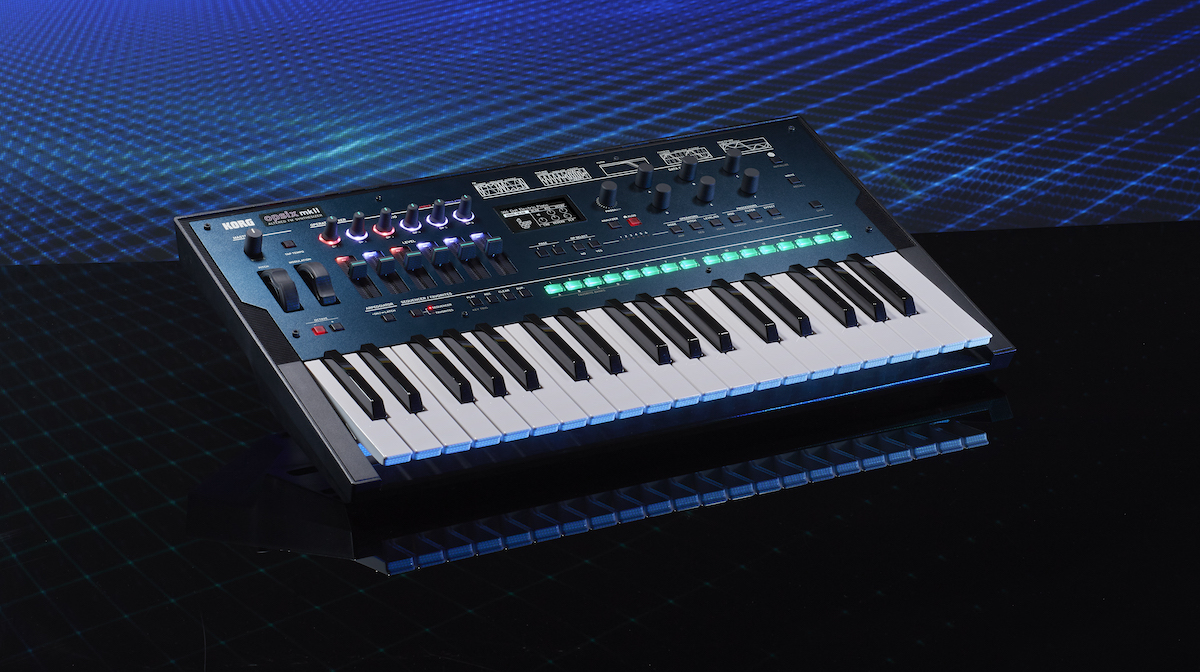
Another Korg update is a brand new version OpSix, one of the company's best digital synths, largely because it makes the previously difficult FM synthesis very hands-on and easy to create sounds with.
The new OpSix MkII looks pretty similar to the original, it has to be noted, but actually doubles the polyphony to 64 voices. The new synth ships in March priced at £699/€799.
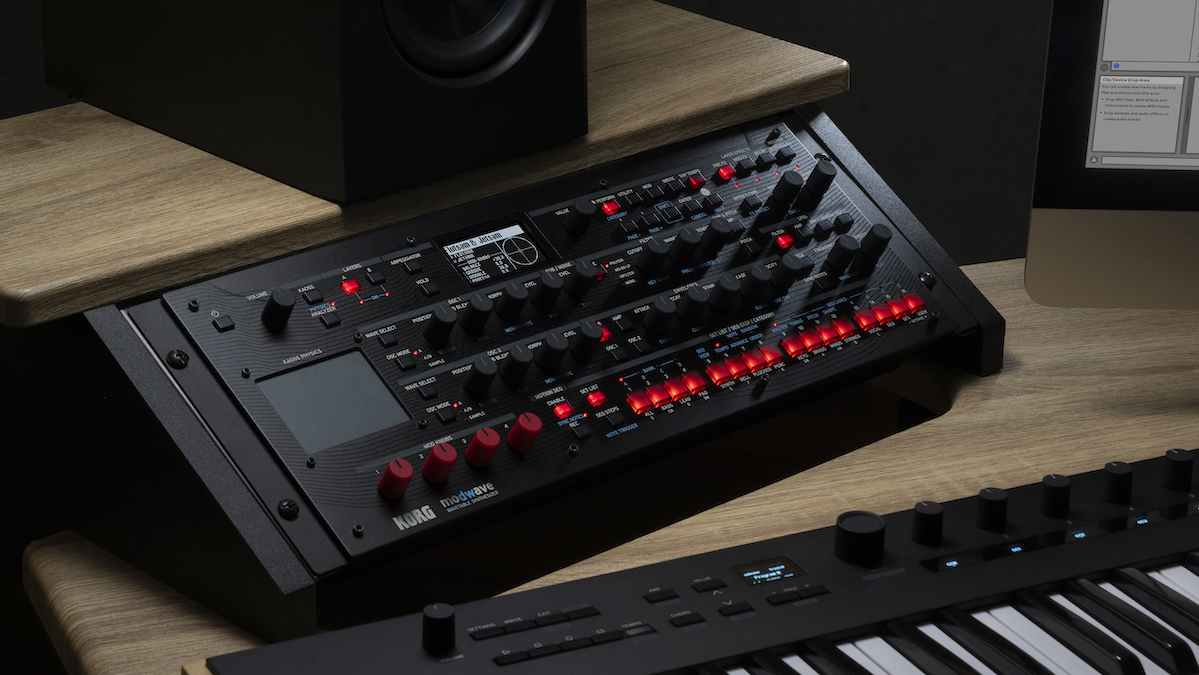
Now to desktop synths, with three compact versions of existing Korg instruments: Modwave MkII, Wavestate MkII, and the aforementioned OpSix MkII. All three of these new modules are 4U in size and can be either rackmounted or used as desktop modules. As you might expect, they are pretty much identical to the full keyboard versions, just lacking that 'board.
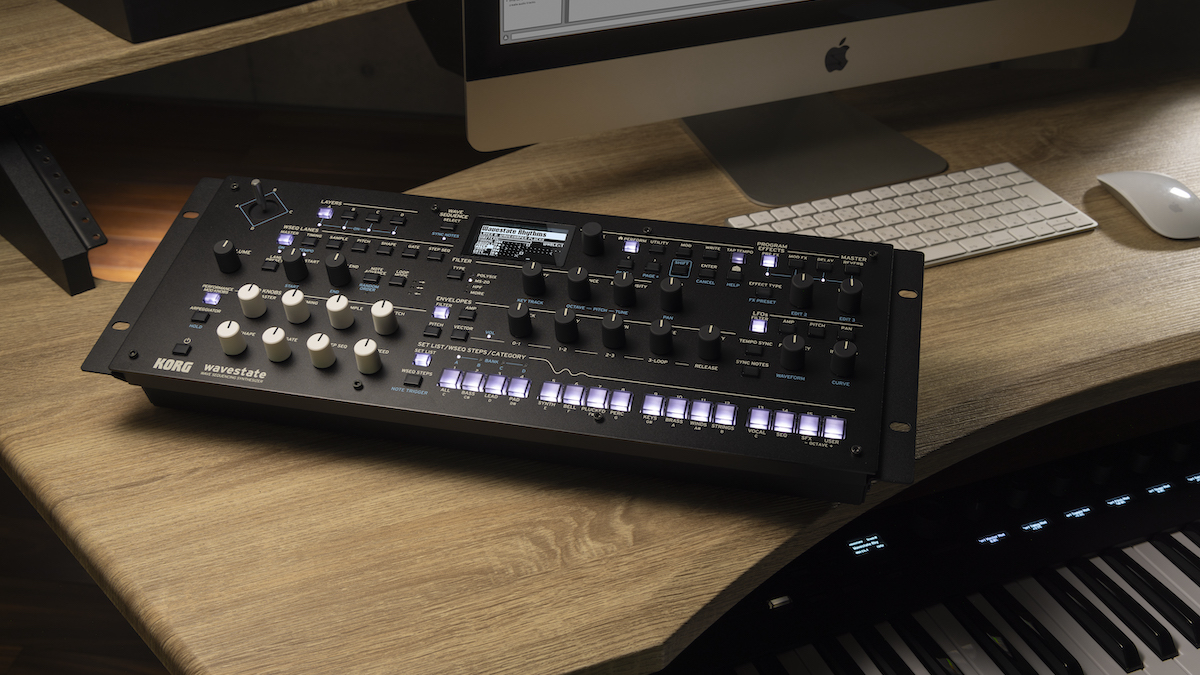
All three synths will cost around £749/$849 and be available in April.
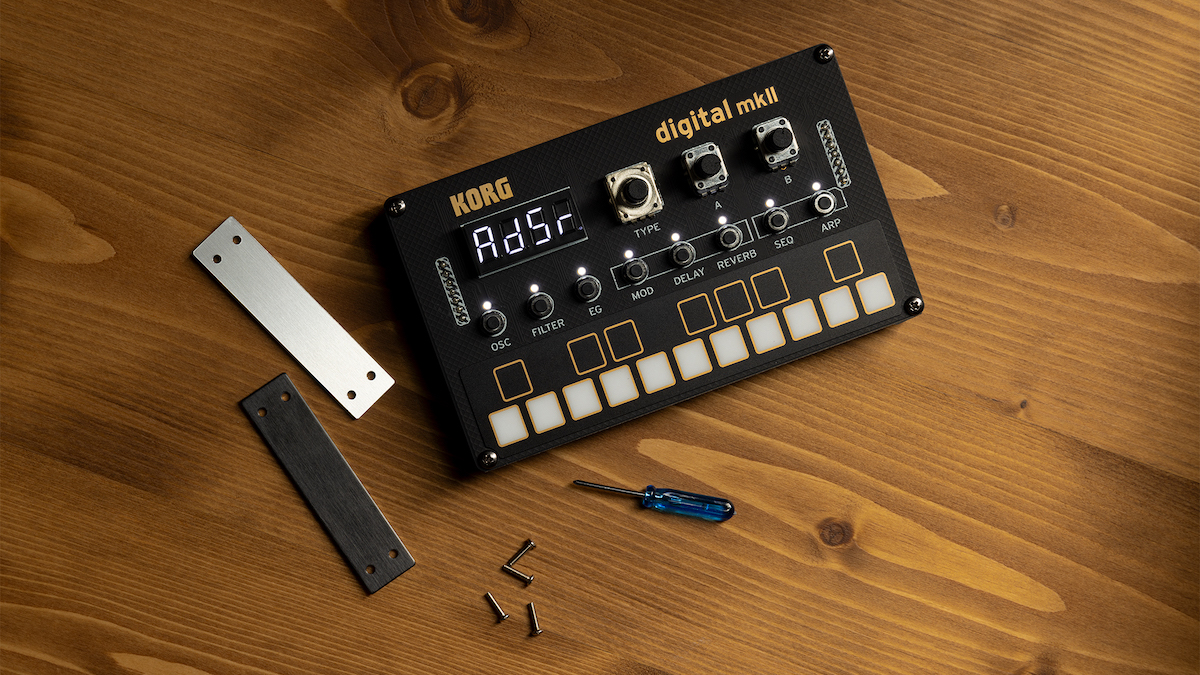
Next up is NTS-1 Digital MkII, an all-new version of Korg's Nu:Tekt NTS-1. The synth is one of Korg's build-your-own models, but also features a better processor than the original version, and adds more sounds and effects. There's an 18-key multitouch keyboard, plus a step sequencer with both live and step recording modes.
The price hasn't been confirmed yet but we've seen some presale figures of £139/$149 touted. NTS-1 Digital MkII ships this April.
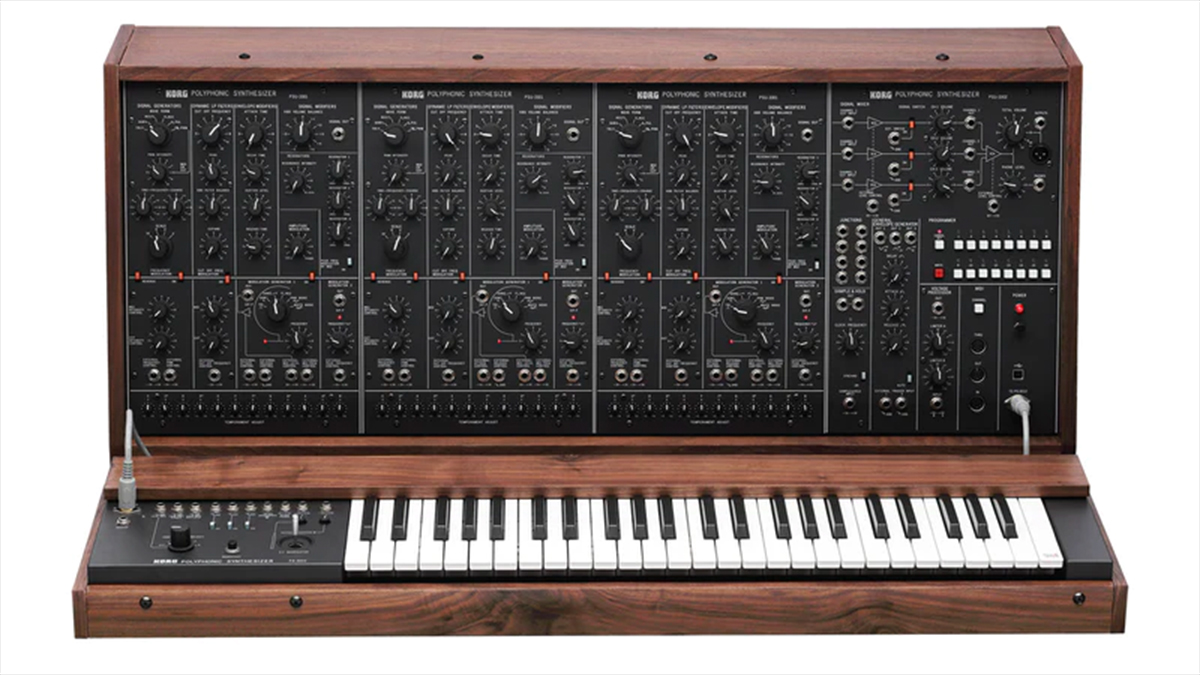
Last up, it's the return of a rare vintage Korg synth, the PS-3300. Just 50 of the original machines were built and sold by Korg between 1977 and 1981. The new version is not exactly going to be mass market either, with the synth being built to order and a price of $13,000 making it a 'special' purchase and probably keeping its rarity stakes high.
The new synth has 49 voices of analogue polyphony, but the true figure is actually three times that. That's because it will boast a key feature of the original, whereby each key accesses three oscillators, filters, envelopes and amplifiers, giving you 147 voices in total – pretty powerful for an analogue synth, then.
Whether that is 13 grand's worth of power only you can decide, but you might have time to save because no release date has been fixed yet.
There's more information on all of Korg's new synth releases on the company's website.
PWM Mantis
PWM's Mantis is our next choice for a synth to look out for this year. It's the last synth that legendary synth pioneer Chris Huggett worked on before he sadly died in 2020. Huggett famously created both the WASP and OSC OSCar synths before having a hand in the Akai S1000 sampler, and helping Novation create many synths including Supernova, Bass Station and Peak.
Mantis is a duophonic synth with what the company calls 'mathematically-generated' oscillators which are based on Huggett's designs. It features an analogue signal path and has a similar signal path to the WASP synth, while its filter is based on that of the OSCar.
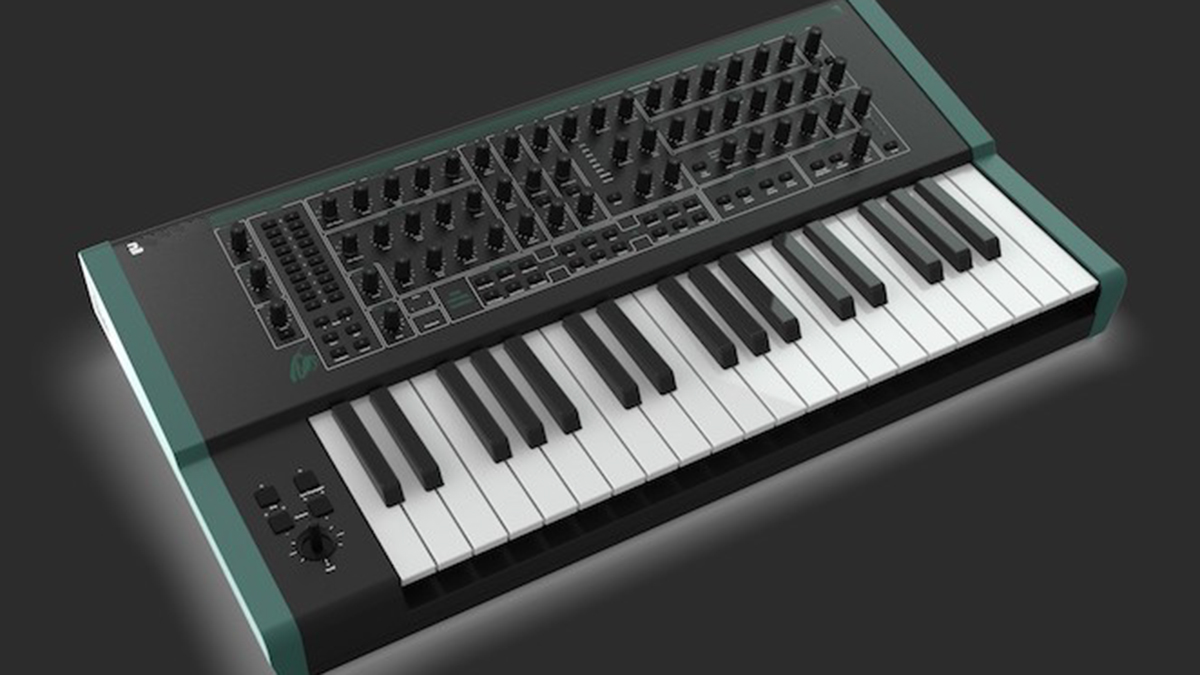
There are two oscillators and a sub per voice, plus an oscillator drift option for pitch variations between oscillators. Each of the duophonic voices has its own signal path with a multimode analogue filter, two LFOs and envelopes. Modulation includes with six control parameters and six sources. Finally, there are digital effects (including reverb and chorus), and an arpeggiator.
The 37-key Mantis is available now for $1,499/£1,349/€1,599. There's more info on the PWM website.
Supercritical Synthesizers Redshift 6
Next up is another NAMM star, the too-cool-for-school Supercritical Synthesizers Redshift 6, a 'Variable Character Synthesizer'. It features both Demon Core Oscillators and the Neutron Flux Filter – so already sounds like the best synth ever. Better still, the oscillators feature different selectable engines including supersaw and 'transistor organ'.
Redshift 6 is an analogue synth but with digital control. It is six-part multitimbral and has up to six voices of polyphony which you can spread between parts (so have six mono synth parts, if you like).
There's a large screen in the middle of the fascia and the unusual hexagonal buttons make it one of the most outstanding looking synths we've seen.
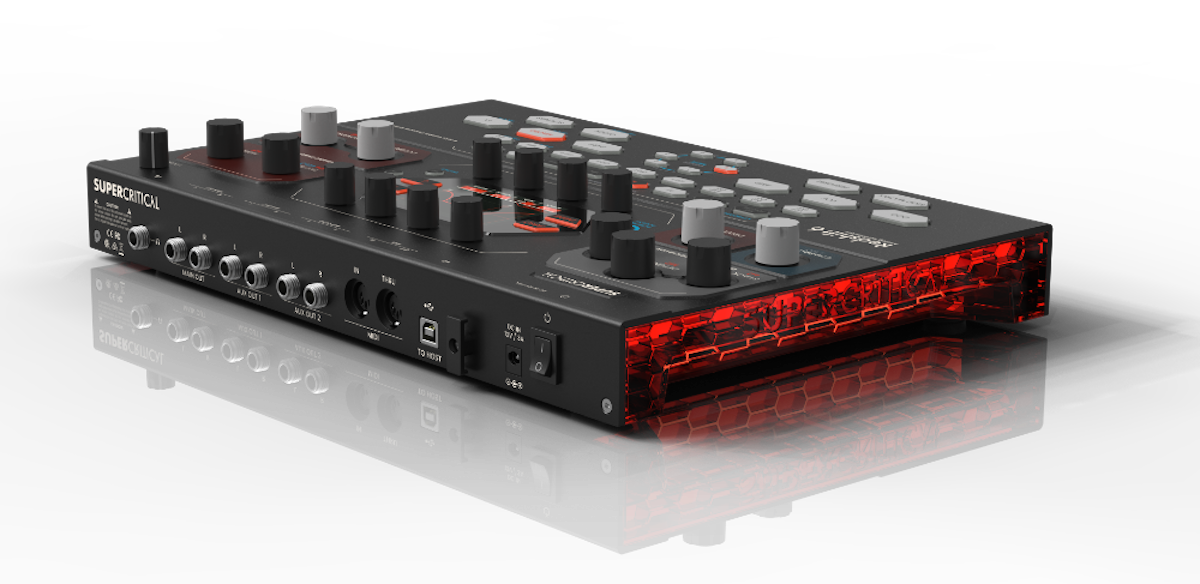
The 'Variable Character Synthesizer' name comes by way of how the analogue signal flow combines with those digital effects and more to create a wide range of sounds which the company says can cover "almost digitally sterile and clean to distorted misbehaviour and beyond".
As good as the synth looks, we'll have to wait a while for it (and save for it, too). It's coming this summer and will cost around £1,099/€$1,249.
Get more info from the Supercritical Synthesizers website.
Behringer’s UB-Xa & Pro VS Mini
So many Behringer synths have been announced over recent months and years that it can be – ok, is – hard to keep tabs on what is just an announcement, what's on the way, or what is actually in the shops. We have tried, though, in this feature.
The situation is made harder because the time between announcement and actual release can be many years, as demonstrated by one of the synths in question here.
The two that we're pretty sure are 2024-ready, though, are these classic emulations, the Behringer UB-Xa and Pro VS Mini. The former is the one that's been in the pipeline the longest. Believe it not, we wrote our first story about this Oberheim OB-Xa clone back in January 2018 - that’s over six years ago.

As well as emulating an Oberheim OB-Xa, the UB-Xa also adds modern niceties such as a 61-note keyboard that’s sensitive to velocity and aftertouch, 512 program memories and comprehensive MIDI support. You can switch between eight vintage modes, too, each of which offers a different kind of sonic character.
All of the factory patches from the OB-Xa have been recreated, and the VCOs and VCFs are said to be “heavily based” on the originals. You get 16 voices, and the keyboard can be split so that you can play two sounds at the same time.
Other features include an 8-channel modulation matrix, 26 rotary controls and preset recall switches that enable you to quickly dart between your favourite sounds during a live performance.
UB-Xa costs around $1,499/£1,200 and is available now (actually, scratch that: at the time of writing dealers are saying anything between five weeks and three months).
The other synth hitting the shops in 2024 is Behringer's Pro VS Mini. There are YouTube videos and everything on this one, so it must surely be winging its way to a dealer near you now, right?
Pro VS Mini is a tiny desktop synth with a similar sound engine to the 1986 Sequential Circuits Prophet VS. It's a 4-voice hybrid vector instrument with 127 wavetables, 32 presets, a sequencer, an arpeggiator, a touch-style keyboard and a cool but small display with an oscilloscope. A Eurorack version of the synth was also teased. As ever with Behringer, the retail price is the most astonishing detail – just $99.
The good news is that we have actually found this one in one UK dealer for just £84, although others are still quoting a three-month wait. To be fair on Behringer, the lack of chips worldwide has obviously had an impact in synth manufacturing (and, of course, other products).
You can get more information on both synths from the Behringer website.

Groove Synthesis 3rd Wave
While the amazing full keyboard version of the Groove Synthesis 3rd Wave was announced back in 2022, the rack version only came out recently. It is a monster wavetable synth and the rack option has all the power of the keyboard version, but will cost you a sizeable $1,500 less.
The synth has three wavetable engines which not only recreate the wavetables found in the original PPG, but also add new wavetables and analogue waveforms. There's a huge 24 voices of polyphony that can be spread across four parts of multitimbrality, so think of it as potentially four 6-voice synths in one.
There are 500 presets and the option to import your own wavetables (and those from soft synths like Serum).
The 3rd Wave module is available now for £$3499 and there's more info from the Groove Synthesis website.
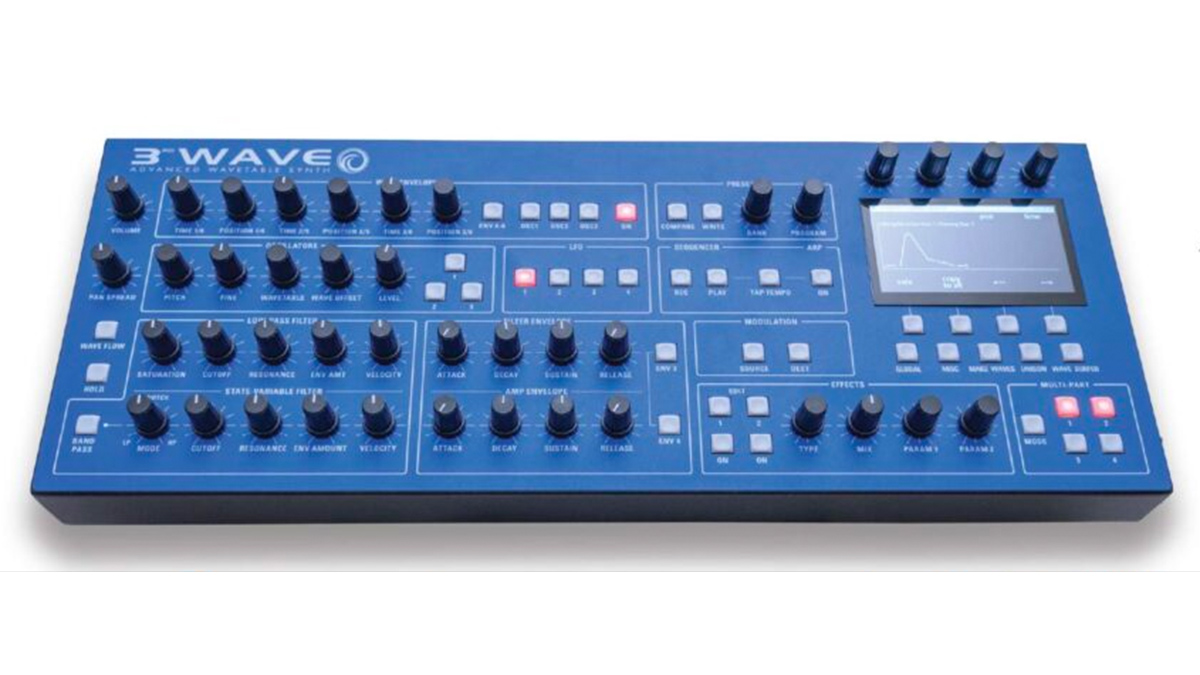
Dubreq Stylophone CPM DS-2 Analog Drone Synthesizer
The Dubreq Stylophone CPM DS-2 Analog Drone Synthesizer is an 'Analog Drone Synthesizer' with two analogue oscillators, filters and sub oscillators, and obviously its speciality lies in making all of them work together to produce drone sounds.
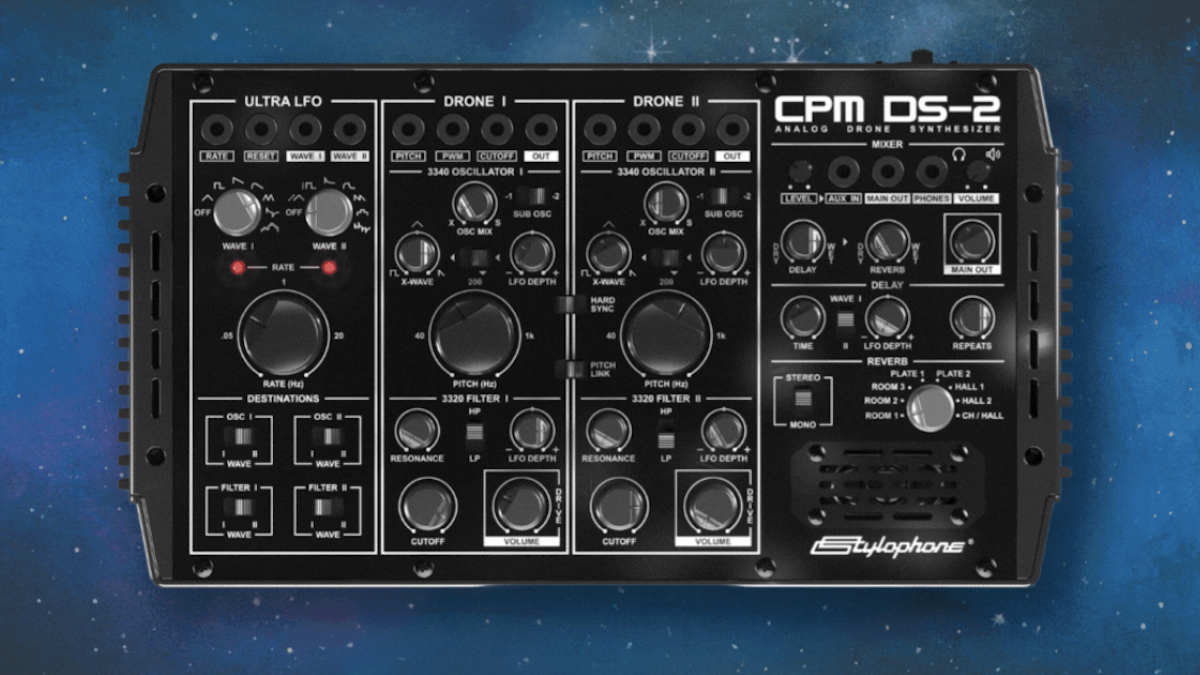
The synth has a compact Eurorack-compatible design with 12 patch points. It also has a vintage-style reverb and delay, and uses either mains or batteries for power so you can drone on a bus, if you wish.
The synth will cost around $259/€239/£209, although there's no release date as of yet. Get more information and preorder at the Stylophone website.
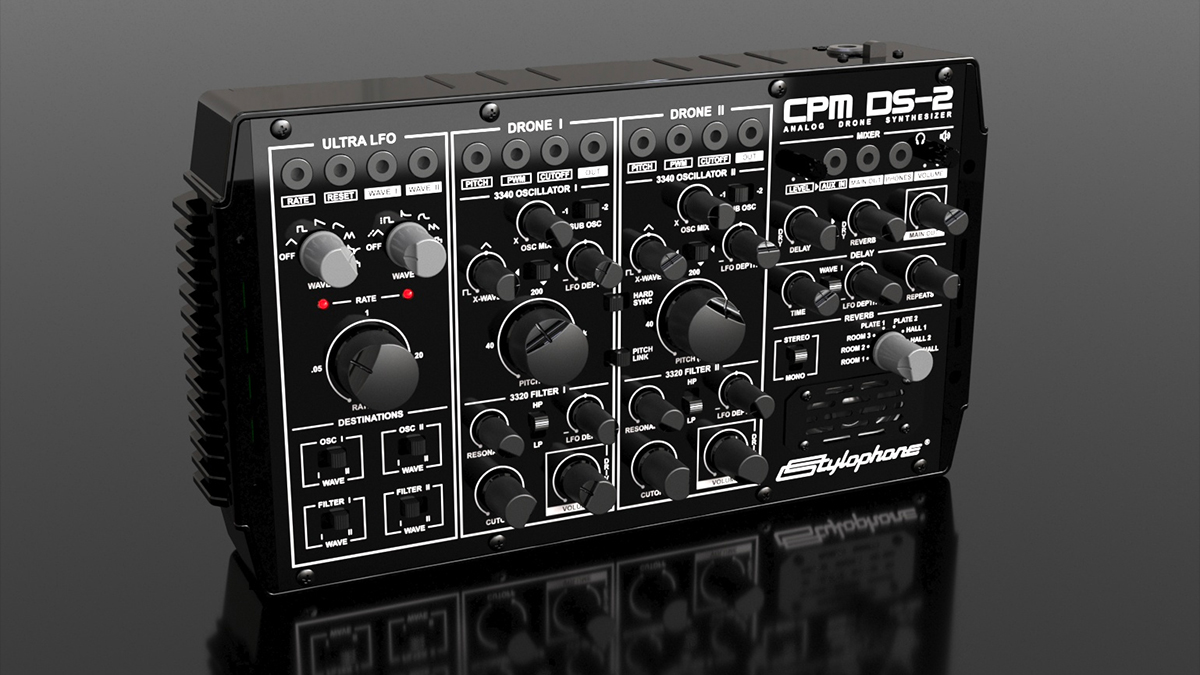
Looking for more great new gear? Get all our roundups, news, features, tutorials, tips and more at our Gear Expo hub page.


Andy has been writing about music production and technology for 30 years having started out on Music Technology magazine back in 1992. He has edited the magazines Future Music, Keyboard Review, MusicTech and Computer Music, which he helped launch back in 1998. He owns way too many synthesizers.










